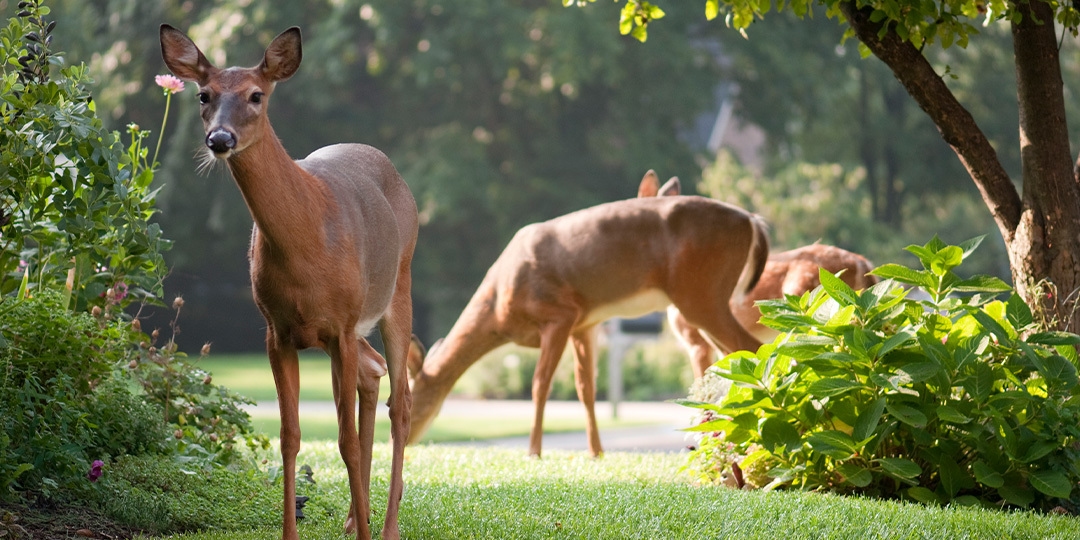Protecting Your Trees from Deer: Tips and Tricks from Monster Tree Service
Deer are beautiful creatures, but they can also be a nuisance for property owners, especially when it comes to the health of your trees. If you've ever experienced deer damage to your trees, you know how frustrating it can be. In this blog post, we'll discuss why deer cause damage to trees, and share some practical tips on how to protect your trees from these lovely, yet destructive animals.
Why Do Deer Damage Trees?
Deer are herbivores, which means they primarily eat plant-based foods. During the fall and winter months, their food sources become scarce, making the tender shoots, leaves, and bark of your trees an attractive meal. Deer can cause significant damage to trees by browsing the foliage, rubbing their antlers on the trunk, or stripping the bark from trees, which can ultimately weaken or even kill the tree.
Tips for Preventing Deer Damage to Trees
Now that we understand why deer are attracted to trees let's explore some practical ways to protect your trees from these creatures.
1. Plant Deer-Resistant Trees and Shrubs
One of the most effective ways to deter deer from your property is to plant deer-resistant trees and shrubs. While no plant is entirely deer-proof, there are many species that deer tend to avoid. Some examples of deer-resistant trees include:
Holly
Japanese Maple
Dogwood
Spruce
Barberry
By incorporating these plants into your landscape, you can help discourage deer from feasting on your trees.
2. Install Fencing
Another effective method for protecting your trees from deer is to install fencing around your property or around individual trees. A tall fence, at least 8 feet high, is ideal for keeping deer out, as they are less likely to jump over it. Alternatively, you can use tree guards or wire mesh around the trunks of individual trees to prevent deer from rubbing their antlers or stripping the bark.
3. Use Deer Repellent Sprays
There are several commercial deer repellent sprays available on the market that can help deter deer from munching on your trees, as well as some safe DIY options. These sprays typically contain ingredients such as garlic, hot pepper, or rotten eggs, which create an unpleasant taste or odor for the deer. Be sure to follow the manufacturer's instructions and reapply the spray frequently, especially after rain, to maintain its effectiveness.
What to Do If Your Trees Have Been Damaged by Deer
If your trees have already been damaged by deer, it's essential to assess the extent of the damage and take appropriate steps to help the tree recover. Some common types of deer damage include:
Browsing: If deer have eaten the leaves or tender shoots of your trees, they may recover on their own with proper care, such as watering and fertilizing. Prune any damaged branches to encourage new growth.
Antler Rubbing: If a deer has rubbed its antlers on the trunk of your tree, causing minor bark damage, the tree may be able to heal itself. However, if the damage is extensive, you may need to consult with a professional arborist to determine the best course of action.
Bark Stripping: If deer have stripped the bark from your tree, exposing the underlying wood, the tree may be at risk of dying. In severe cases, you may need to remove the damaged tree and replace it with a more deer-resistant species.
Conclusion
Protecting your trees from deer can be challenging, but with some planning and proactive measures, you can help ensure the health and beauty of your landscape. By planting deer-resistant trees, installing fencing, and using deer repellent sprays, you can minimize the risk of deer damage to your trees. And if your trees have already been damaged, be sure to assess the situation and take appropriate steps to help them recover.
At Monster Tree Service, we're here to help you with all your tree-related needs. Whether you need assistance with deer damage prevention or tree care after deer damage, our team of professional arborists is ready to help. Contact us today at (888) 744-0155: or request a free estimate online.

